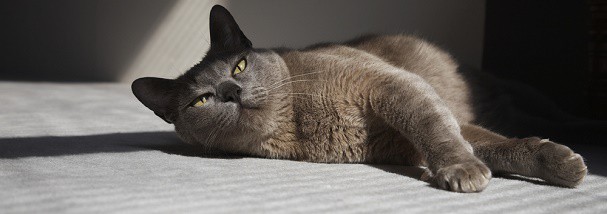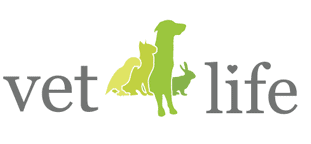 Hyperthyroidism is a very common disease in older cats. It is caused by an over production of thyroid hormones, this causes the cat to burn through calories and normally suffer from weight loss. This over production often results from a benign change, however in a small number of cases this may be related to a cancerous cause.
Hyperthyroidism is a very common disease in older cats. It is caused by an over production of thyroid hormones, this causes the cat to burn through calories and normally suffer from weight loss. This over production often results from a benign change, however in a small number of cases this may be related to a cancerous cause.
Fortunately there are many treatment options available and the prognosis is good.
Clinical signs that may be seen include: weight loss, an increased appetite, increased thirst, increased heart rate, and poor coat quality. Uncontrolled hyperthyroidism can be related to heart disease. Commonly cats with hyperthyroidism also have kidney disease and care is needed to manage both of these diseases.
Diagnosis is reached through history taking, clinical examination and blood testing.
Medical management is commonly used to control over-production of thyroid hormones and lots of different medications are available. These are given either to stabilise before surgery or radiotherapy or as a long term medication. If used for life regular monitoring is required through health checks and blood tests.
Surgery can be performed to remove the thyroid gland and may provide a cure, however in some cats hyperthyroidism will relapse later in life and require medication. Surgery may be associated with risk of damage to parathyroid glands which may require further treatment.
Radioactive iodine therapy has a high chance of achieving a cure for hyperthyroidism and is safe and effective. Cats undergoing this therapy need to stay hospitalised for a few days and the treatment requires referral to a specialist centre at present.
Dietary therapy using an iodine restricted diet has some success in patients who have no outdoor access and are guaranteed to only eat the diet.


